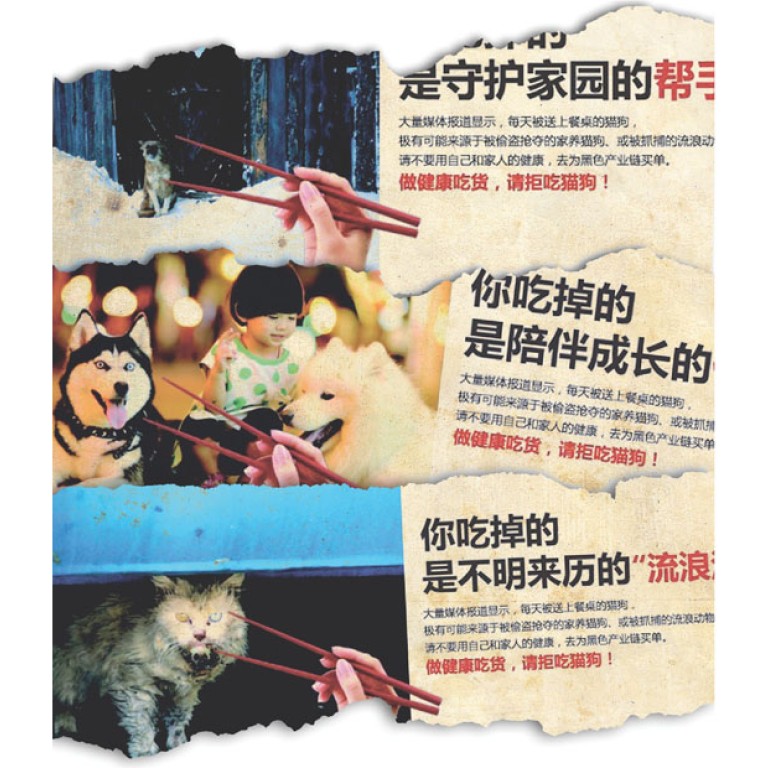
Dog and cat meat eaters hit back at animal rights group adverts
Since September, Animals Asia has been urging people across the mainland to stop eating cats and dogs by using a head-turning poster series that shows the animals sandwiched between a pair of chopsticks.
A leading animal rights group has been forced to revise a provocative advertising campaign in northeast China following a public outcry.
Since September, Animals Asia has been urging people across the mainland to stop eating cats and dogs by using a head-turning poster series that shows the animals sandwiched between a pair of chopsticks.
The images are accompanied by a simple message: "Be healthy. Say NO to cat and dog meat."
The advertisements caused a considerable stir and the campaign was hailed as a success by the advocacy group after the images went viral.
However, the campaign faced a backlash in northeastern China, where locals defended their right to eat dog and cat meat as one of their traditions.
In Shenyang - where the consumption of dog meat is widespread - posters in the city's metro system had to be revised following complaints from commuters.
"They think we should not put up the advertisements because eating dogs is a so-called 'tradition,'" said Carrot Chen, Animals Asia cat and dog welfare deputy manager. "We want to spread the message that tradition is not an excuse for cruelty."
In the case of one set of posters, locals took exception to the use of the word (security guard) to describe guard dogs, saying it was offensive to actual security guards.
"They couldn't find any real reason to complain, so they just used this word as an excuse," said Chen, rejecting the criticism of the campaign.
The consumption of dog meat is still common in parts of China, where some believe it has the power to ward off ghosts and disease. It is also believed by some to boost men's sexual performance and has been used in traditional Chinese medicine to treat male impotence.
The southern city of Yulin in Guangxi province hosts an annual "Dog Meat Festival" to coincide with the summer solstice. To the chagrin of animal rights activists, revellers traditionally tuck in to the meat as the sun reaches its highest point in the sky.
A similar festival slated to be held in Zhejiang province in 2011 was cancelled following an online outcry.
"The truth is, if you eat dog or cat then you have no idea where that meat is coming from or how safe it is," said Irene Feng, Animals Asia dog and cat welfare director.
"Stray dogs and cats, many of them far from healthy, are snatched from the streets and pets are still being stolen and taken to horrific meat markets. We believe that, faced with this knowledge, most people would find such a meal entirely unappetising."
